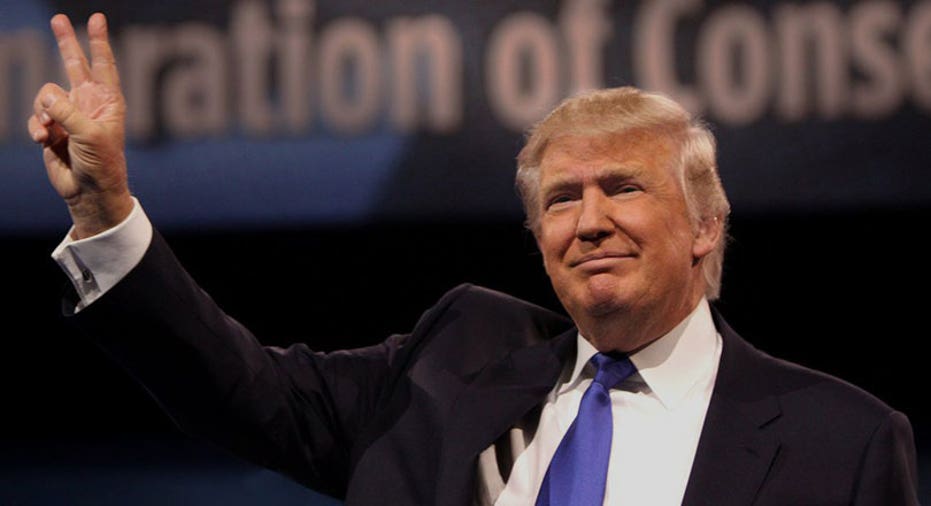Apple Is Now the Anti-Trump Computing Platform

The platform war and the culture war are now one.
Over the weekend, Apple leaked that it's backing out of supporting the GOP convention this year because of Donald Trump. Trump has so many anti-Apple stances that it's hard to figure out which one was the last straw. He hammers the company for making products in China and for evading taxes; he once called for his followers to boycott Apple (while tweeting from an iPhone); his general anti-immigration stance tends to irritate Silicon Valley; and although he's taken a more socially liberal stance than some other Republican candidates, his vocal white-nationalist followers tend to make social liberals nervous.
Until now, tech companies have done their best to pretend to be neutral actors in our deeply riven polity, trying to make sure they're baked into both parties' strategies. Sometimes tech leaders take a stance: Apple's Tim Cook celebrated marriage equality, investor Peter Thiel is a Trump delegate, and former HP CEO Carly Fiorina even ran for president herself. But generally they try to keep their own soapboxes away from their commercial interests. Thiel is on the Facebook board, which is run by Mark Zuckerberg, who spoke out about Trump's proposed Muslim ban but whose site hosts pro-Trump and anti-Trump groups. Various companies stepped up against North Carolina's HB2 law, seemingly at little cost to their businesses.
Beyond their leaders' positions, you are taking a political stance through the products you buy. You can't avoid it. It's baked into the companies' strategies. Go with Google, Apple tells you, and you're making a vote for corporate surveillance. It's not wrong. Choose Walmart, and you've made a statement that consumer convenience outweighs the civic value of having small, locally owned stores. That's a choice you make. Pick T-Mobile, and you deal a blow to the Communications Workers Union. Maybe your decisions end up being an incoherent mishmash. That's okay; people are complicated and selfish and sometimes don't make clear sense. But you've voted those positions with your wallet nonetheless.
We've been able to ignore the implications of some of these positions through a conspiracy of willful blindness and a society-wide agreement not to look into some things too closely. T-Mobile doesn't like people talking about the union thing. Walmart pretends, vigorously, that it's good for the communities it hollows out. Google tries to soothe fears about privacy. They all have their opponents playing on their weaknesses, but they've rarely fallen into exact, amplifying alignment with our other toxic political divides, so most people look away. They like their gadgets too much.
Now, just as Donald Trump has ripped so many Band-Aids of politeness off our fractured, hate-ridden country, he's torn this one to shreds, too. Trump and Apple, together, have now essentially said that if you buy an iPhone, that's an anti-Trump statement. There's no way around it. I've never really seen anything happen like this before in the consumer tech industry, and I'm intensely curious to see what happens next: will the Apple/Android and Apple/Microsoft platform wars start dividing by political party? Will Trump supporters instead double down on the truncheons, saying that they're going to keep using iPhones, win the election, and then beat Apple into submission? Or will this just blow over, like Trump's call for an anti-Apple boycott in February did?
One thing has become clear: we are no longer one nation, under Donald Trump. We can't even pretend to be.
This article originally appeared on PCMag.com.



















